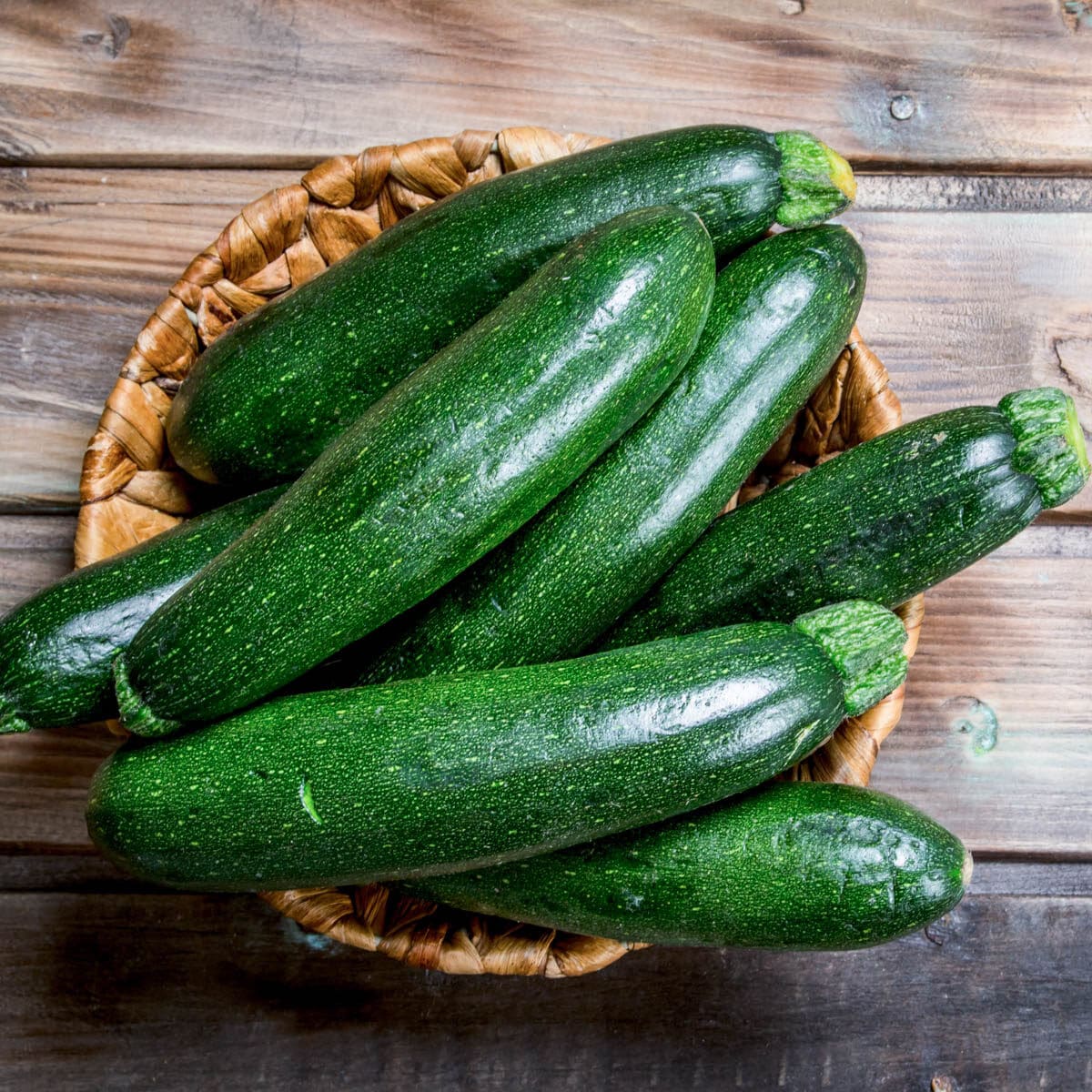How To Tell If Zucchini Is Bad
Zucchini, with its mild flavor and versatility, is a favorite in home cooking. However, like all fresh produce, it’s important to be able to tell when it’s past its prime.
In this post, we’ll go over how to identify bad zucchini, the key indicators to look for, and how to properly store and select this popular vegetable.
How to tell if zucchini is bad
To tell if zucchini is bad, check for changes in appearance (dull color, spots), smell (unpleasant, strong odor), and texture (soft, mushy, or slimy). Fresh zucchini should be vibrant green, firm, and have a slight earthy smell. Spoiled zucchini should be discarded to avoid potential foodborne illnesses.

Identifying bad zucchini is crucial to ensure you’re using fresh, nutritious ingredients in your dishes. There are several telltale signs that your zucchini has spoiled, such as changes in its appearance, smell, and texture.
Appearance
A fresh zucchini should have a vibrant green color and firm skin. If the zucchini has become dull or yellow, or if there are visible spots, blemishes, or mold, it is likely bad.
The zucchini should be discarded in these cases, as consuming spoiled produce can lead to foodborne illness.
Smell
Healthy zucchini has a fresh, somewhat earthy smell. If your zucchini emits a strong, sour, or unpleasant odor, it’s a clear sign that it’s gone bad.
Always trust your nose when it comes to assessing the freshness of your produce.
Texture
Fresh zucchini is firm to the touch. If your zucchini has become soft, mushy, or slimy, it has likely spoiled.
This change in texture is often accompanied by a change in color and smell, so be sure to look out for these signs as well.
Also, learn how to tell if eggplant is bad or how to tell green beans are bad.
What happens if you eat bad zucchini?
Consuming spoiled zucchini can lead to food poisoning, causing unpleasant symptoms like nausea, vomiting, diarrhea, and stomach cramps.
In more severe cases, it could even result in fever or dehydration. Therefore, it’s important to properly check your zucchini before using it to prevent any potential health issues.
This includes observing for changes in color, texture, or smell, which are all signs of spoilage.
By being diligent about the freshness of your produce, you not only ensure the taste of your dishes but also the health and safety of those enjoying them.
“For a broader understanding of how to identify spoilage in all types of vegetables, refer to our detailed article: ‘How to Spot if Your Vegetables Have Gone Bad‘.”
How to choose fresh zucchini
Selecting fresh zucchini starts at the grocery store or farmers market. Look for zucchini with a bright green color, firm skin, and a slightly glossy appearance.
It should feel heavy for its size. Avoid zucchini with blemishes, cuts, or soft spots, as these are signs of decay or damage.
How to store zucchini
Proper storage can significantly extend the shelf life of your zucchini. For short-term storage, keep your zucchini in a plastic bag in the refrigerator’s vegetable drawer.
For longer periods, freezing zucchini is an excellent option. To freeze, simply wash, slice, blanch, cool, dry, and freeze the zucchini slices on a tray before transferring them to a freezer-safe bag.
I have a post that goes over how to store zucchini and also how to freeze zucchini with step by steps directions to help you do it correctly.
How long does zucchini stay fresh?
When stored correctly, zucchini can stay fresh for about 1-2 weeks in the refrigerator. On the counter, it’s best used within 2-3 days.
If frozen, zucchini maintains its freshness for up to 9-12 months. These timelines may vary depending on the initial freshness of the zucchini, so always check before using.
Frequently asked questions about how to tell if zucchini is bad
Conclusion
As an avid home cook, knowing how to identify, store, and select fresh zucchini is essential. This knowledge ensures the dishes you prepare are not only delicious but also safe and nutritious.
Remember to check your zucchini for signs of spoilage and store it properly to maximize its freshness.

Online Cooking for Beginners Course